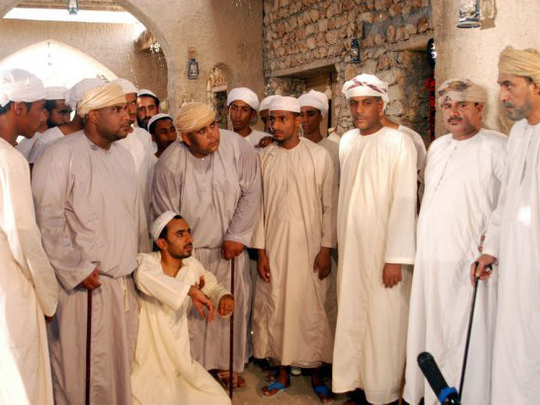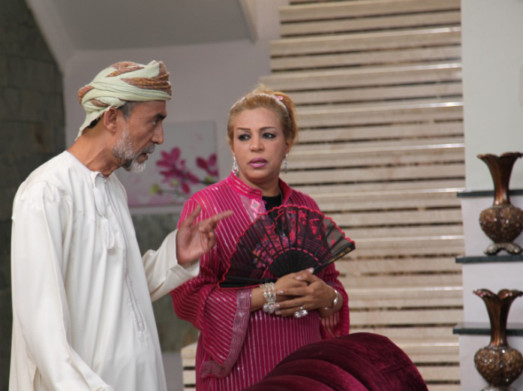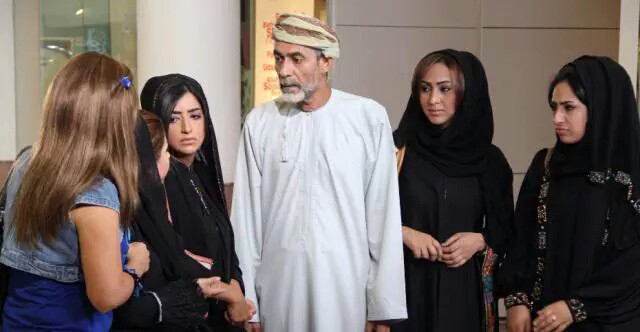
Muscat: The quality of Omani soap operas has been the subject of fresh debate in the country, in what could be a major shift for a country with a rich history of successful dramas.
Omani serials were renowned in the Arab world in the 1980s and ‘90s. More than seven acclaimed serials were produced over the two decades by the Oman TV channel.
Those serials included Fajoorah wa Shangoob, Saeed wa Saeedah, Shaib Khalaf, Khalfan phi Mahab Al Reeh (Khalfan in the wind’s blow), Shanjoob wa Al Fak Al Muftarees (Shanjoob and the predator’s jaw) and Oman in history.
Saleh Zaal, Saleh Shuwayrid, Fakryah Khamis, Saud Al Darmaki and Ameenah Abdu Al Rasool were the major actors and actresses in those productions.
Some of those serials were aired in other Gulf countries, including the UAE, Saudi Arabia, Kuwait and Bahrain.
However, many Omani viewers have been complaining that today’s series have seen a sharp deterioration in quality, with often the same plot lines and same actors being recycled in different serials.
Viewers complain of weak scripts, production and acting as well.
Ahmad Al Mehrzi, an Omani national working in a private sector, says dramas in the country have failed to stand up to the quality of dramas made in other GCC countries and Omanis now prefer to watch those dramas instead.
For Rashid Al Hatali, an engineer, proof of the failure of Omani serials are the fact that not a single drama is shown in other GCC countries, while other Arab and Gulf shows are available on Omani television.
Al Hatali complained that the actors speak in strange accents, some of which he has never heard, and none of the dramas reflect the reality of life in Oman.
Jamal Al Hinai says that producers are too concerned with making the serials funny and the serials are losing their dramatic character.
Others disagree, for Nasser Al Hatmi, the serials are improving year after year following the establishment of the Oman Public Authority for Radio and Television.
He particularly praised Dahaleez (corridors), a series that appeared last Ramadan.
Bushra Al Beloushi, a student at Sultan Qaboos University, said that she prefers Turkish and Indian drama, more than Omani drama.
“I spend more time on watching Turkish and Indian drama”, says Bushra.
Another woman, Haleema Al Ghafri, a teacher in Muscat, said she prefers to watch old Omani dramas as well as new ones from other Gulf countries.
Haleema justified said dramas from other Gulf countries are more sophisticated and very professional compared to modern Omani drama.
Ahmad Al Marshodi, a drama critic, told Gulf News that Omani series need more time to grow and compete with other Gulf and Arab dramas by drawing in new script writers, actors, actresses and drama experts from outside the country.
Ahmad Al Hooti, a script writer, said there was no decline in the quality of Omani dramas but some of the local productions were not being displayed in other GCC TV channels due to privacy laws.
Other Omani serials like Wad Al Theeb (the son of the wolf) and Helm Al Sineen (the dream of the years) were displayed in other GCC TV channels, Al Hooti said.
Al Hooti said Omani drama still reflected the country’s traditions and virtues.
Anees Al Habib, director, said Omani drama has witnessed ups and downs since it establishment in 1980s.
Al Habib calls on the Omani authorities to put more efforts and care for the drama as it’s the mirror for the developing of any community
Saleh Zaal, one of the leading actors who spared no efforts to develop the Omani drama since 80s, said that Omani old drama is unforgettable as there were few channels in the past.
Saleh added that such old drama touches the reality of Omani community back then.
“ The Omani drama has developed more than in 80s and 90s, with the high quality of production, art techniques, more actors and actresses as well as scripts”, says Saleh.
Saleh believes that the Omani dram development is slow and takes time to compete with other Arab drama.
Another prominent actor, Ahmad Al Beloushi, said Omani drama is struggling due to lack of the scripts as well as funding.
Al Beloushi added that participation of other Gulf actors in Omani dramas had helped in its development.
Al Beloushi described Omani production companies as small shops that don’t have enough equipment.
Kuwait’s drama industry tops other Gulf drama as it has very prominent actors and actresses, enough scripts and budgets, produces fifteen serials annually at least.
Rashid Al Beloushi, drama expert, said that there is a joint cooperation between Kuwaiti and Omani production companies in producing more than five serials in the past ten years.
Enkisar Al Samt (Silence break), Sarkat Emraha (woman’s scream), Akhar Al Anqood (the last cluster) and Diwan Al Arab are among the serials that both Kuwaiti and Omani actors participate.
Critics believe that the participation of the Kuwaiti actors have refined skills of some young Omani actors and script writers.
Akhar Al Anqood was one of the best serials that produced in 1993, tells about the family’s issue with the youngest spoiled son when the parent neglect other sons.
Shama Mohammad, a leading actress who appeared in shows like Enkisar Al Samt (the break of the silence), Tareeq Al Mualamat (the teachers road) and Sawalif Layl wa Nahar (day and night chatting), says the reason for the deterioration is that authorities do not invest enough in developing Omani acting.
Actors are typically very underpaid which deters many from pursuing an acting career.
“There is a severe shortage actually of actors, script writers, producers and directors,” she said, adding that there should be more associations set up to train and cultivate actors.
Many of the more famous Omani actors such as Fakhriya Khamis, Ebrahim Al Zadjali, Shama Mohammad, and Buthaina Al Raisi have become famous only after appearing in Kuwait, Saudi and Emirati dramas, which they say provide better opportunities to develop their careers.












